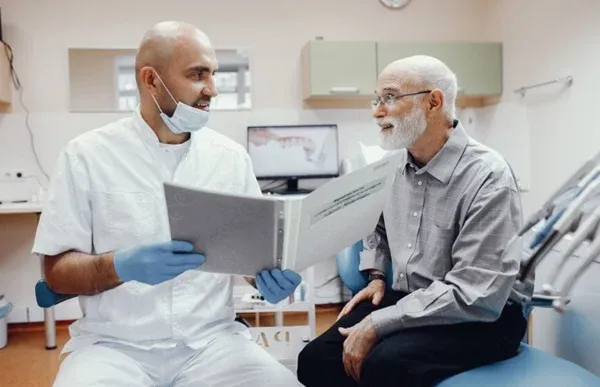All-on-4 Dental Implant Care: Tips for a Healthy Smile
Dental Implants Solutions
If you are one of the millions of people with missing teeth, All-on-4 dental implants may be a viable solution. This procedure involves placing four dental implants to support a full arch of replacement teeth. While the all-on-4 dental implant procedure has a high success rate, proper care and maintenance are essential for a healthy, long-lasting smile. In this article, we'll provide tips for caring for your all-on-4 dental implants to keep your smile looking and feeling great.
Immediate Post-Procedure Care Instructions
After undergoing the All-on-4 dental implant procedure, proper care during the initial recovery period is crucial for ensuring optimal healing and minimizing discomfort. Here are some essential post-procedure care instructions to follow:
- Follow the Dentist's Recommendations: Your dentist will provide specific post-procedure instructions tailored to your needs. Following these instructions is important to promote healing and prevent complications.

- Take Prescribed Medications: Your dentist may prescribe painkillers, antibiotics, or anti-inflammatory drugs to manage pain and reduce the risk of infection. Take these medications as directed, and contact your dentist immediately if you experience any adverse reactions.
- Manage Discomfort: Some discomfort, swelling, and bruising are expected after the All-on-4 procedure. Use cold or ice packs wrapped in a cloth to reduce swelling and alleviate pain. Make sure to follow your dentist's recommendations regarding the duration and frequency of applying cold packs.
- Stick to Soft Foods: In the days following the procedure, stick to a soft diet to avoid putting too much pressure on the implants or irritating the surgical site. Opt for mashed potatoes, yogurt, soup, scrambled eggs, and smoothies. Make sure to avoid hot, spicy, crunchy, or hard foods that disrupt the healing process.
- Avoid Smoking and Alcohol: Smoking and alcohol consumption can disrupt the healing process and cause implant failure. It's best to avoid smoking and alcohol during the initial recovery period and beyond to support the long-term success of your dental implants.
- Attend Follow-Up Appointments: Attend all routine follow-up appointments with your dentist. This helps your dentist monitor your healing progress, adjust your treatment plan, and address any questions or concerns you may have.
- Be Mindful of Physical Activity: Avoid strenuous physical activity or heavy lifting in the days following the All-on-4 procedure. It's essential to give your body time to rest and heal properly.
Daily Oral Hygiene Routine for All-on-4 Implants
Maintaining a consistent daily dental hygiene routine is important for preserving the health and longevity of your All-on-4 dental implants. Here's a step-by-step guide to help you keep your implants clean and free from plaque and bacteria:
- Brushing: To clean your teeth and implants, use a soft-bristled or electric toothbrush with a small head. Brush at least twice a day, preferably after eating and before bedtime. Gently brush the chewing, outer, and inner surfaces of your teeth and implants using fluoride toothpaste. Pay special attention to the areas where the implants meet the gums, as plaque can accumulate there.
- Flossing: Use dental floss to clean between your teeth and around the implants. Gently slide the floss or brush between the teeth and implants, making sure to clean both sides of each implant. Be careful not to force the floss or brush, which could irritate the gums or damage the soft tissue around the implants. Flossing should be done at least once daily to remove plaque and food particles between teeth.
- Rinsing: Rinse your mouth with an antimicrobial mouthwash or a saline solution after brushing and flossing. Swish the mouthwash around your mouth to help reduce bacteria and promote gum health. Choose an alcohol-free mouthwash specifically formulated for dental implants.
- Using Oral Irrigators: Oral irrigators, also known as water flossers, can be beneficial for cleaning around dental implants. Use the irrigator to direct a stream of water along the gum line and between the teeth and implants to flush out plaque and debris. Use the irrigator on a low to medium setting to avoid causing discomfort or damage to the gums.
- Regular Dental Checkups: Schedule regular checkup appointments with your dentist for professional cleanings and examinations. Your dentist will evaluate the health of your implants, monitor for any signs of complications, and provide guidance on maintaining optimal oral hygiene.
- Avoiding Harmful Habits: Avoid habits that can damage your implants, such as smoking, chewing on hard objects, or using your teeth as tools. Moreover, avoid sugary and acidic foods and beverages, which can cause tooth decay.
Lifestyle Habits for Optimal Implant Health
In addition to regular dental checkups and good dental hygiene, certain lifestyle habits can significantly impact the health and longevity of your All-on-4 dental implants. Here are some lifestyle practices to consider for maintaining optimal implant health:
- Quit Smoking: Smoking can negatively impact oral health and the success of dental implants. It impedes blood flow to the gums, slows down the healing process, and causes implant failure. If you are a smoker, quitting is one of the most effective ways to improve dental implants and oral health.
- Limit Alcohol Consumption: Excessive consumption of alcoholic beverages can make your mouth dry, which in turn can cause bacterial growth and gum disease. To prevent these issues, it is recommended to limit alcohol intake and drink a lot of water to stay hydrated. Adequate hydration promotes saliva production, which helps rinse food particles and bacteria from the mouth, keeping it clean and healthy.
- Manage Stress: Chronic stress can negatively impact the immune system, making it more difficult to fight off illnesses and exacerbating oral health issues such as gum disease. To help manage stress levels and support overall well-being, it's important to practice stress-reducing techniques such as mindfulness, meditation, exercise, or engaging in hobbies and activities you enjoy. These activities can help you relax and reduce the adverse effects of stress on your body.
- Protect Your Teeth: It is important to wear a mouthguard if you participate in contact sports or activities that can potentially cause oral injuries to protect your dental implants and natural teeth from harm. Accidents can occur at any time, harming your implants and compromising their stability. Therefore, it is crucial to take precautions to maintain your oral health at its best.
- Maintain a Balanced Diet: A healthy diet consisting of fruits, vegetables, lean proteins, and whole grains is important for maintaining overall health and promoting healing. Avoid consuming too many sugary and acidic foods and beverages, as they can cause tooth decay and gum disease. Instead, choose nutrient-dense foods that nourish your body and support the health of your dental implants.
- Practice Good Posture: Poor posture can cause jaw misalignment and temporomandibular joint (TMJ) issues, which can affect the stability and function of your dental implants. It is essential to pay attention to your posture, especially when sitting or standing for extended periods. Practice ergonomic habits to maintain proper alignment and minimize strain on your jaw and facial muscles.
- Stay Hydrated: Maintaining adequate hydration is crucial for producing saliva, which cleanses the mouth and prevents bacterial growth. Drinking sufficient water daily can help keep your mouth moist and promote optimal oral health. Avoiding the consumption of sugary and acidic drinks is recommended, as they can lead to tooth decay and erosion.

- Get Sufficient Sleep: Getting enough high-quality sleep is crucial for maintaining good overall health and well-being, including taking good care of your teeth and gums. You should aim for 7-9 hours of sleep to support your body's natural healing processes and promote optimal immune function. Poor sleep habits can weaken your body's ability to fight off infections and slow down the healing of dental implants, so it's important to prioritize getting enough sleep every night.
Conclusion
By incorporating these lifestyle habits into your daily routine, you can support the health and longevity of your All-on-4 dental implants and enjoy a confident smile for years. Be proactive about maintaining your oral health, and consult your dentist if you have any concerns or questions about caring for your implants.
Contact your Walnut Creek dentist, Dr Massood Darvishzadeh, DDS at Dental Implant Solutions, to learn about All-on-4 Dental Implant Care: Tips for a Healthy Smile.
Resource:
What is Involved With A Dental Implant Placement?
*This media/content or any other on this website does not prescribe, recommend, or prevent any treatment or procedure. Therefore, we highly suggest that you get the advice of a qualified dentist or other medical practitioners regarding your specific dental condition*
Subscribe To Our Newsletter
Get Updates And Learn From The Best
More To Explore



CONTACT US
Massood Darvishzadeh, DDS
2021 Mt Diablo Blvd., Suite 100A
Walnut Creek, CA 94596
(925) 939-2600info@dentalimplantsolutions.net